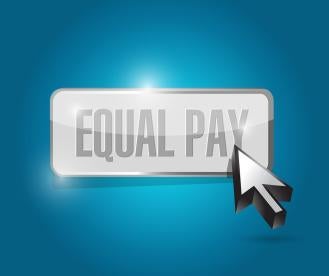On March 8, 2017, Puerto Rico continued the overhaul of its employment laws by enacting, with immediate effect, Act No. 16, known as the “Puerto Rico Equal Pay Act.” The act is not only similar to the federal Equal Pay Act of 1963, it also requires that Puerto Rico courts interpret the act in accordance with its federal counterpart and related federal regulations. Some of the key provisions of the act are summarized below.
Prohibition on Salary Discrimination
The act prohibits pay discrimination based on sex against employees who perform work that requires equal skill, effort, and responsibility under similar work conditions unless the difference in pay is based on: (i) a bona fide system that rewards seniority or merit; (ii) a compensation system that is based on quantity or quality of production, sales, or profits; (iii) education, training, or experience, to the extent that these factors are reasonably related to the work in question; or (iv) any other reasonable factor that is not related to sex.
Illegal Practices
The act proscribes the following illegal practices:
-
asking an applicant, or his or her current or past employer, about the applicant’s salary history, unless the applicant voluntarily provides such information or the potential employer and applicant have already negotiated a salary and an offer of employment has been made, in which case the potential employer may inquire or confirm the potential employee’s salary history;
-
prohibiting an employee or applicant from asking, discussing, soliciting, or divulging information about his or her salary or the salary of another employee who performs a comparable job (save for very narrow exceptions for human resources, supervisory, and managerial personnel, and other employees with permitted access to employee compensation data); and
-
terminating, threatening, discriminating, or otherwise retaliating against an employee in relation to his or his terms, conditions, compensation, location, benefits, or privileges of employment because the employee: (i) divulged his or her salary or asked about or discussed the salary of other employees; (ii) objected to any act or practice that has been declared illegal by the act; (iii) filed a complaint pursuant to the act; or (iv) offered or intended to offer, verbally or in writing, any testimony, expression, or information as part of an investigation against his or her employer due to violations of the act.
Civil Actions and Penalties
The act allows an employee who alleges pay discrimination to bring a civil claim for twice the amount of the pay discrepancy. This amount includes actual damages for the pay discrepancy plus an additional penalty in the amount of the discrepancy. The employee is also entitled to reasonable costs and attorneys’ fees. An employer may avoid the additional pay discrepancy penalty if, within a year before the filing of the claim, it has initiated or completed, in good faith, a self-evaluation of its compensation policies and taken reasonable efforts to eliminate pay disparities based on sex.
In the same vein, if an employer engages in any of the illegal practices described in the section above, the employee will be entitled to double the amount of damages caused by the employer’s illegal action.






 i
i

